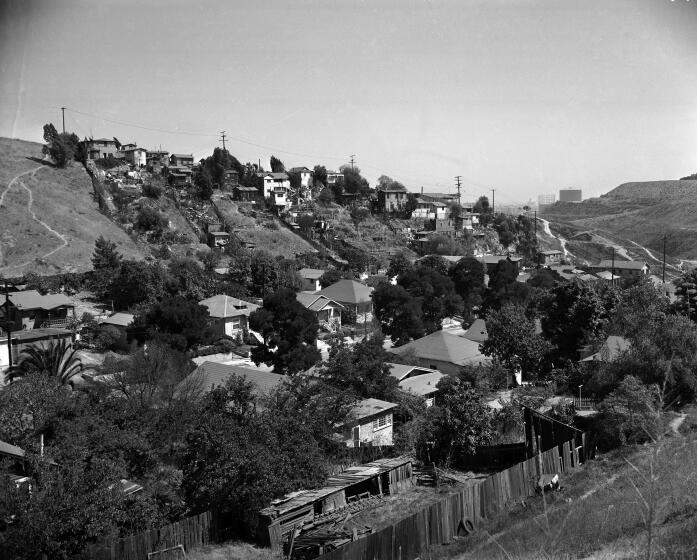Letters to the Editor: I was removed from my Chavez Ravine home in 1951. This is what L.A. owes displaced residents

To the editor: As a displaced resident of Palo Verde — one of the neighborhoods cleared in the 1950s at the current site of Dodger Stadium — I do not support Assembly Bill 1950, the Chavez Ravine Accountability Act. But I do support justice and government accountability for families displaced by the city of Los Angeles. ("What does Los Angeles owe the people who lost their homes in Chavez Ravine? More than an apology," editorial, May 9)
AB 1950 would require Los Angeles to create a commission of nine individuals chosen by politicians. It would be up to the newly created commission to determine who would qualify for compensation, a daunting task when you consider the number of children, grandchildren and great-grandchildren that exist. This will likely cost millions of dollars before a single penny reaches a descendant.
Instead, let's include the stories of these people in our history books. My community was destroyed because the city said we were a slum. We were not slums. There was plumbing in the neighborhoods. Many of the Mexican and Mexican American families were third generation and on an upward trajectory. My uncle was a pharmacist who graduated from USC.
Let's put faces on this history and teach the future generations not to repeat the city's mistakes.
The city should create a memorial in Elysian Park to honor our ancestors who settled in Palo Verde, La Loma and Bishop at the start of the 20th century, which AB 1950 calls for. The city should accept accountability for unjustly displacing us. This could be accomplished without state legislation that would spend money on yet another commission.
Carol Jacques, Los Angeles
..
To the editor: I would like to remind Angelenos of another vanished neighborhood that was taken through eminent domain at the same time the residents of Chavez Ravine were losing their property. For similar reasons, what happened to Chavez Ravine happened on Bunker Hill, where I once lived.
Bunker Hill, now part of downtown Los Angeles, was made up of lower-income residents who were powerless, unvalued and in possession of property coveted by a city bent on taking it. They, too, were displaced with the promise that they would soon be able to return to new housing. That promise was not kept.
Now I read that there is a "growing movement for reparations for people whose property was unjustly taken over the decades." While I do not expect compensation, the former residents of Bunker Hill deserve acknowledgment and an apology from the city for what was done to them.
Gordon Pattison, Napa, Calif.
..
To the editor: What responsibility do the L.A. Dodgers and the city have to give reparations to people who lived in Chavez Ravine? None.
Many adults who lived in Chavez Ravine are no longer alive. Most families left under eminent domain by 1951. Between 1951 and 1959, Chavez Ravine was mostly open space. In 1959, the families that remained were evicted from land they no longer owned.
The city shouldn't spend millions of dollars on a commission, compiling descendant land ownership data and awarding tax-free compensation.
AB 1950 presents a "daunting" task. Who determines who gets what? What will the city pay to defend itself against lawsuits brought by descendants' attorneys who believe they were improperly denied compensation?
Though my family left Chavez Ravine by 1951, it blossomed elsewhere. Self-reliance is a good thing.
Larry Herrera, San Juan Capistrano
This story originally appeared in Los Angeles Times.

